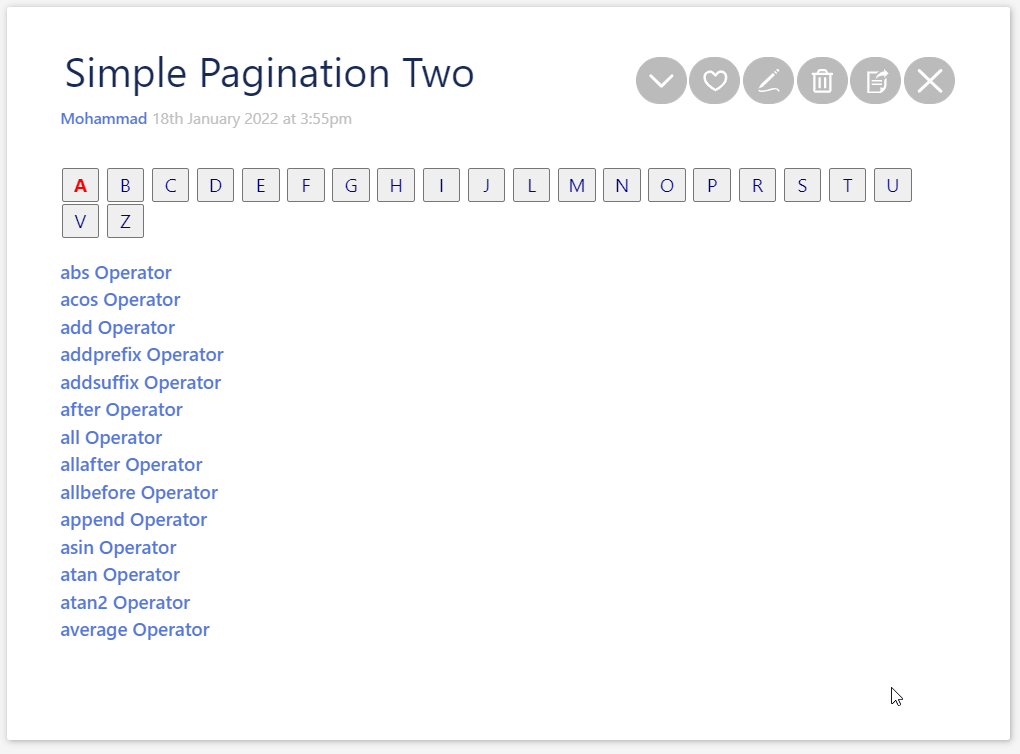While there are good documentation on filter, :filter, and :map on tiddlywiki.com, still there are confusions in using them! I would appreciate if through more examples, application of these excellent tools clarified.
Conclusion
Based on @saqimtiaz clarification, I conclude the below discussion as:
- There are no requirements for
:filterbeyond that if it returns a result for an input title, that title is kept and if not, it is discarded. - Similarly, the only requirement for
:mapis that it return a single result for every input title - Filter run prefixes can accept filter constructors like
:filter[all[tiddlers].... - Filter run prefixes
:filter,:mapand:reduceonly receive a single title as input. So if you want to query all tiddlers, you need to start your filter run withall[tiddlers]. -
:filteris a filter run prefix. Filter run prefixes need the filter run to be provided as literal strings, you cannot use variables. If you want to use a variable, then use thefilter[]operator.



